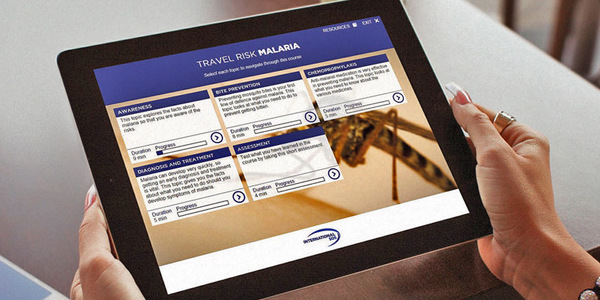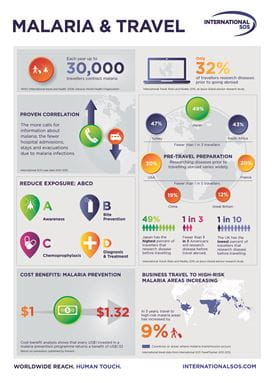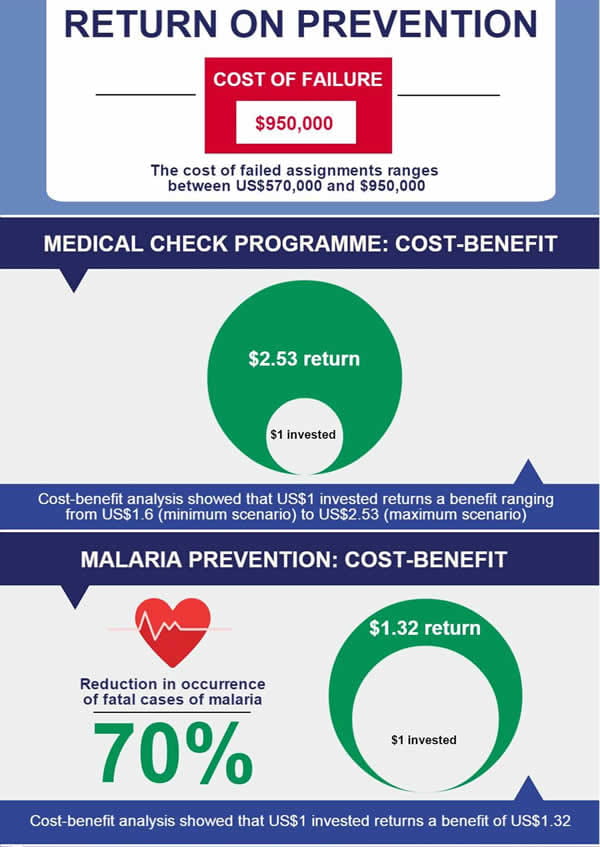Turning the tide on malaria
Published: April 2016
WORLD MALARIA DAY 2016 - INVEST IN THE FUTURE: DEFEAT MALARIA.
We are used to reading bleak headlines about malaria. In 2015 however, the World Health Organization (WHO) reported zero indigenous cases of malaria in the European region for the first time since it began keeping score. The region of the Americas and Western Pacific region have also achieved substantial reductions in malaria cases.

It is the African region that continues to shoulder the heaviest malaria burden. However, there have been impressive gains too: since 2000, malaria mortality rates have fallen by 66% among all age groups, and by 71% among children under five according to the World Health Organization.
So, is the tide finally turning on malaria? No doubt there has been enormous progress reaching more people than ever with lifesaving malaria interventions and reducing malaria deaths worldwide. About 3.2 billion people - half of the world population - remain at risk of malaria. People are still not accessing the services they need to prevent and treat malaria. World Malaria Day (25 April 2016) is a much-needed reminder that this serious, and at times fatal, disease still has a devastating impact.
MALARIA AND BUSINESS TRAVEL
This year, travel buyers are forecasting a confident outlook for business travel despite broader economic challenges, according to new research from the ATPI Group and the Institute of Travel and Meetings (ITM). More companies than ever send their employees to new markets to expand their global footprint.
However, in June 2015, Public Health England (PHE) reported an overall increase of 5.7% in imported malaria infections. Malaria: health advice for travellers, 12 June 2015.
While there is no vaccine, malaria is both preventable and curable. Travellers, schools, expatriates, businesses and non-governmental organisations must know the risks before travelling abroad. Getting accurate information out about prevention is the first step.
A recent Ipsos Global Advisor study asked participants about their concerns and preparations when travelling abroad. Among the global sample of people who travel abroad, 92% say they make some kind of preparations before they travel. But just 32% of those who travel tend to research diseases.
International SOS ’ Dr Irene Lai highlights, “Companies must exercise Duty of Care and define their training procedures and policies towards malaria if they have employees travelling to, or operating in, risk areas. Even a quick business trip could potentially be fatal without appropriate measures in place.”
MOVING FORWARD
International SOS provides education and malaria prevention services to reduce risks to organisations and their travelling employees. The value of such programmes was highlighted last year in the Return on Prevention study, published by research and consultancy firm Prevent. The analysis of one company’s malaria prevention programme demonstrated a decrease in the occurrence of fatal cases by 70%.
HOW DOES MALARIA SPREAD?
Malaria is spread to humans via the bite of an infected Anopheles mosquito which typically bites at night (from dusk until dawn).
MALARIA SYMPTOMS
Symptoms such as fever, chills, head/body aches and generally feeling tired and unwell develop about seven days after being bitten but can take a month or longer to appear. If not promptly treated, malaria can be severe.
It may cause mental confusion, seizures, kidney failure, coma and death. Travellers are more likely to suffer these complications than local inhabitants.
PREVENTION
There is no vaccine to prevent malaria. Prevention is through prevention of mosquito bites. Some people are also advised to take anti-malarial drugs to prevent infection (chemoprophylaxis), depending on where they are travelling to, their accommodation and the type of activities they are undertaking.
Chemoprophylaxis and bite prevention is not 100% effective, and people must still be alert for symptoms of the disease, and seek prompt diagnosis treatment if they develop.












